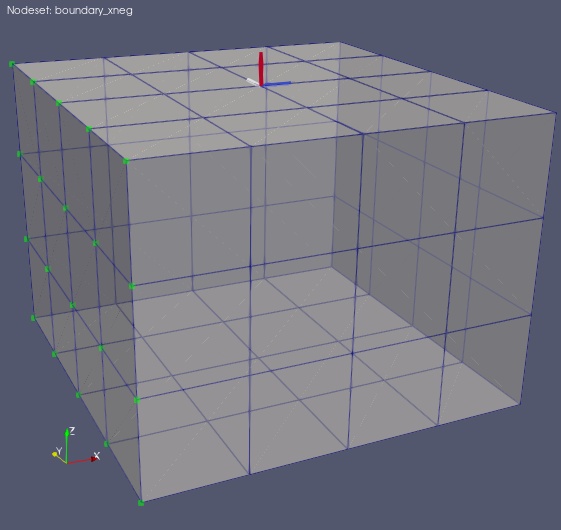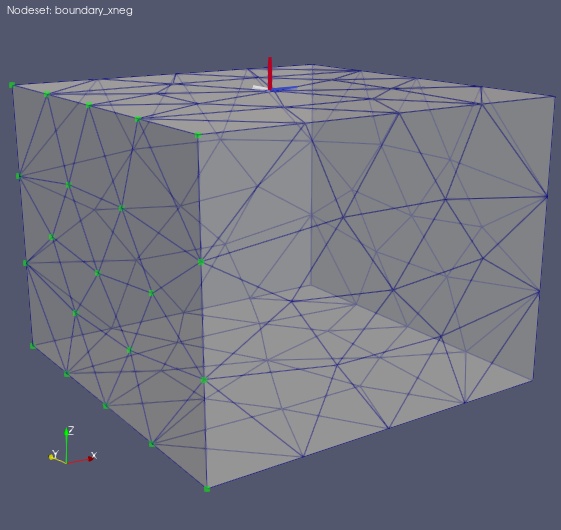Cubit Mesh#
Geometry#
We can create the geometry directly from the brick primitive in Cubit.
Meshing using Journal Scripts#
We use Cubit journal files mesh_tet.jou and mesh_hex.jou to generate tetrahedral and hexahedral meshes, respectively.
Both of these journal files make use of the geometry.jou, and bc.jou files for creating the geometry and tagging boundary conditions and materials.
We use the Cubit graphical user interface to play the Journal files.
Important
We use IDless journaling in CUBIT. This allows us to reference objects in a manner that should be independent of the version of CUBIT that is being used. In the journal files, the original command used is typically commented out, and the following command is the equivalent IDless command.
Once you have run either the mesh_tet.jou or mesh_hex.jou journal file to construct the geometry and generate the mesh, you will have a corresponding Exodus-II file (mesh_tet.exo or mesh_hex.exo).
These are NetCDF files, and they can be loaded into ParaView.
This can be done by either running ParaView and loading the file, or using the script provided in the viz directory.
For example, if ParaView is in your path, you can run the following command:
viz/plot_mesh.py Python script to view the mesh with hexahedral cells.#paraview --script=viz/plot_mesh.py

Fig. 37 Finite-element mesh with hexahedral cells generated by Cubit.#
To load the mesh with tetrahedral cells, open the Python Shell in ParaView and set the EXODUS_FILE variable, and then run the viz/plot_mesh.py Python script.
See ParaView Python Scripts for more information about running ParaView Python scripts.
EXODUS_FILE variable in the ParaView Python Shell.#EXODUS_FILE = "mesh_tet.exo"

Fig. 38 Finite-element mesh with tetrahedral cells generated by Cubit.#
